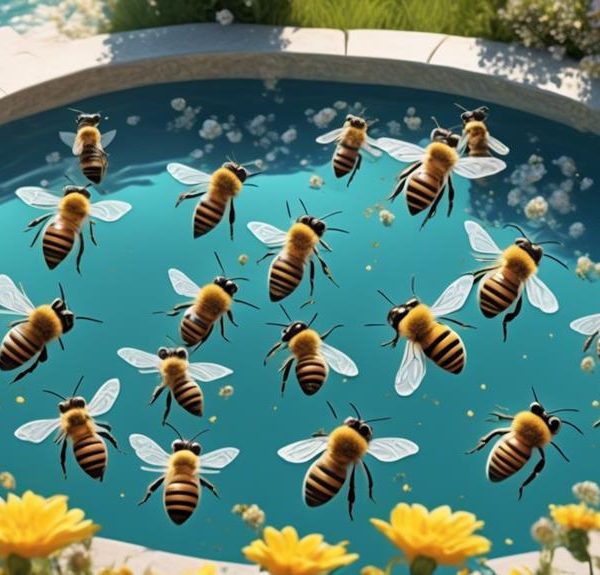Find out why your swimming pool is a buzzing attraction for honey bees during the hot summer days.
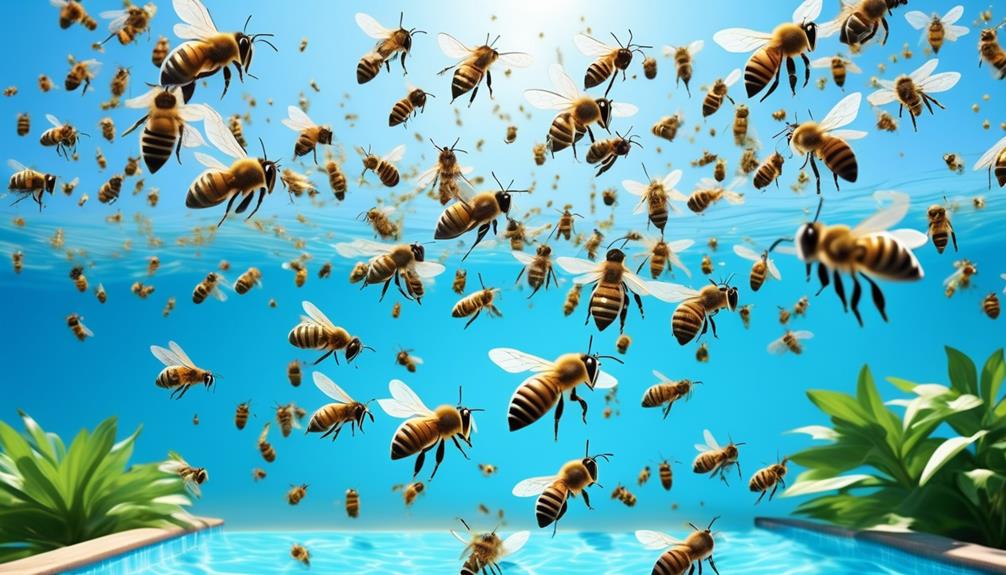
Are Honey Bees Attracted to Swimming Pools
Like flowers in a desert, your swimming pool might seem like an oasis to honey bees during the sweltering summer days. You've probably noticed these buzzing visitors around your pool and wondered, 'Are honey bees really attracted to swimming pools?'
The truth is, they are. Bees need water, just like any other living creature, and your swimming pool serves as a convenient source. However, the relationship between bees and swimming pools is more complex than it first appears. Intrigued? Let's dive into the hidden depths of this peculiar attraction.
Key Takeaways
- Bees are attracted to swimming pools for calm, shallow water sources.
- Bees visit pools more during hot, dry weather when natural water sources are scarce.
- The chlorine smell in pools can attract bees seeking minerals.
- Implementing strategies to discourage bee visits, like covering the pool and providing alternative water sources, can help manage bee activity around pools.
Understanding Honey Bee Behavior
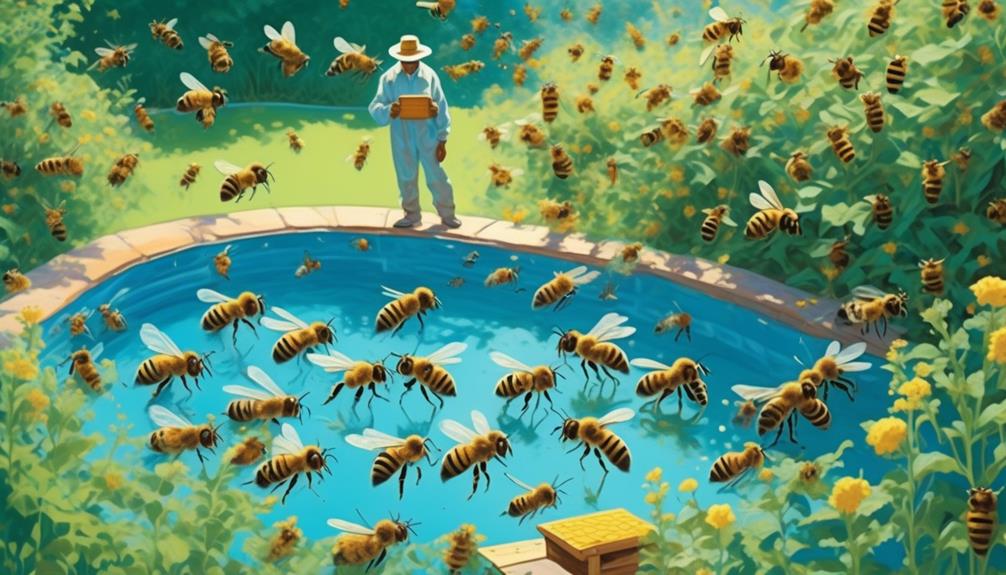
Before we delve into why honey bees may be attracted to your swimming pool, it's crucial to first understand their typical behavior patterns. You see, honey bees are remarkably industrious creatures, primarily driven by a need to gather resources for their respective colonies. They're attracted to a variety of things, including flowers, certain colors, and, quite significantly, water sources.
Now, you might scratch your head at that last one, but it's true. Honey bees require water for multiple purposes within their hive. For one, they use it to cool the hive during hot weather. Secondly, it's an essential ingredient in the bee bread they produce for larval food. Lastly, honey bees also use water to dilute honey when it becomes too concentrated.
The Water Needs of Bees
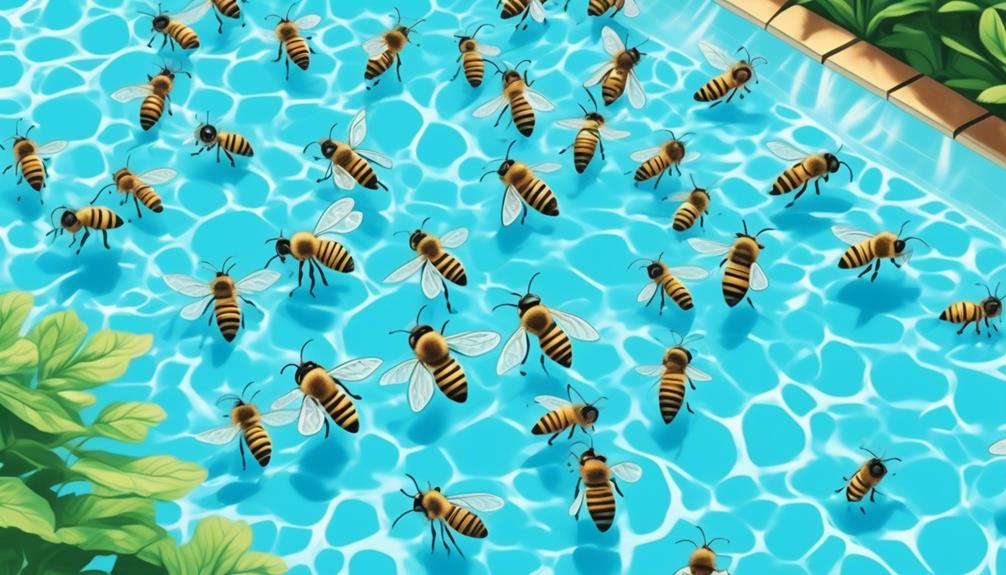
Understanding the water needs of bees, specifically honey bees, is a key factor in grasping why they might find your swimming pool attractive.
Just like us, bees need water to survive. However, their needs are more intricate than just hydration. Water is essential for food dilution, larvae nourishment, and hive temperature regulation. In hot seasons, it's common to observe bees collecting water. They're not drinking, they're gathering. Back in the hive, this water is used to cool down their home and help keep the queen bee at a steady temperature.
Finding water can be tricky for these hardworking creatures. They can't simply sip from a river or a pond like larger animals. They need shallow, calm water sources where they can land without getting wet. This is where your swimming pool comes in. It's big and open, with plenty of landing spots on the pool's edge or on floating debris. And, it's usually filled with still water, making it a perfect spot for bees.
Swimming Pools: An Unexpected Oasis
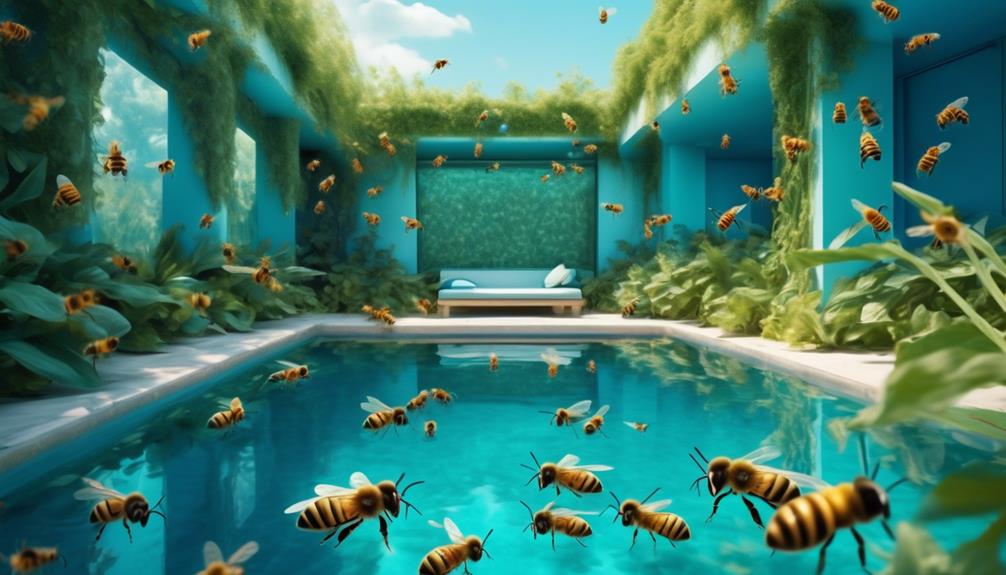
Gazing at your sparkling swimming pool, you mightn't realize it's viewed as an unexpected oasis by parched honey bees in search of water. The shimmering blue waters aren't the only attraction; it's the pool's chlorine smell that acts as a beacon. Chlorine, for bees, is a scent similar to the salts they'd find in natural water sources. It's not that they're pool party enthusiasts, they're just following their instincts.
The bees' need for hydration and mineral intake is so vital that they'll brave the dangers of your pool. They risk drowning or being swatted away by unsuspecting swimmers, but the allure of the water is too strong. So, they'll hover, land on a floating leaf, or perch on the edge, lapping up the precious liquid.
You'll notice they'll visit more frequently on hot, dry days when natural water sources are scarce. You might even see a bee-line (pun intended) straight from the hive to your pool. It's a survival strategy that's as fascinating as it's unexpected. So, next time you dive in, remember you're sharing your oasis with these industrious insects.
Consequences of Bees Around Pools
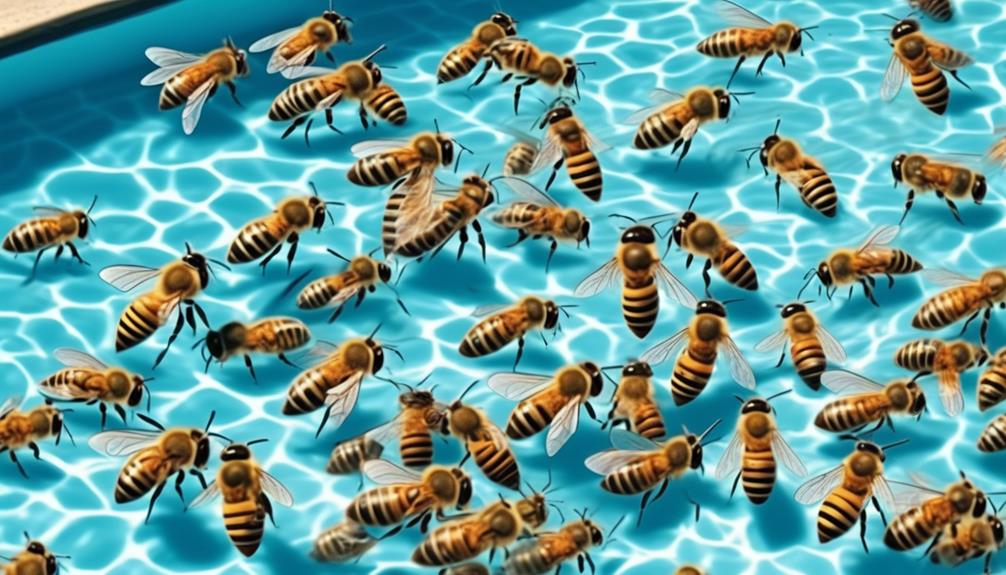
So, what happens when your backyard pool becomes a regular pit stop for these thirsty bees?
First, you'll notice a significant increase in bee activity around your pool, which might cause discomfort, particularly if you or a family member is allergic. You'll find bees hovering over the water surface, sipping on the pool water, and in unfortunate situations, some might even end up drowning.
Next, you'll experience a disruption in your leisure time. Imagine trying to enjoy a peaceful swim, only to have bees buzzing around you. This might make you, your family, and guests anxious, thereby reducing the enjoyment and relaxation that a pool typically offers.
Moreover, the presence of bees can also create a potential safety hazard. Bees, when threatened, can sting, which can cause painful and potentially severe reactions. While bees are generally non-aggressive, accidents can occur, especially in situations where children, who mightn't understand the need to stay calm around bees, are involved.
Lastly, the drowned bees can contaminate your pool water, necessitating frequent cleaning and maintenance. Therefore, it's crucial to manage this issue promptly to prevent these inconveniences and potential dangers.
Solutions to Discourage Bee Visits
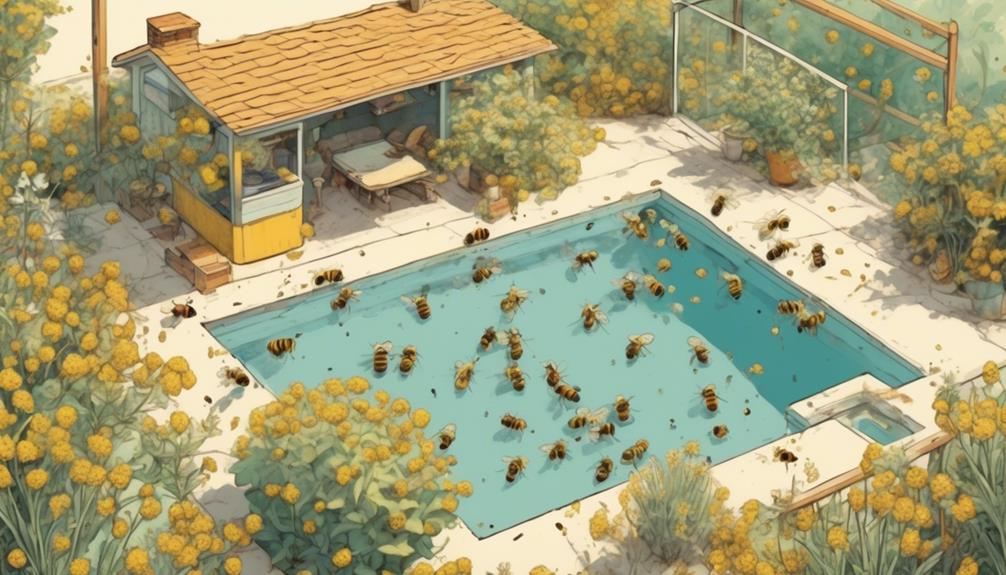
Despite the challenges posed by bees around your pool, there are several effective methods you can implement to discourage their visits and reclaim your swimming space.
Firstly, consider covering your pool when it's not in use. Bees are attracted to water, so eliminating this source can help curb their visits. You can also set up a water source, like a birdbath, away from your pool. Bees may be drawn to this instead, leaving your pool bee-free.
Secondly, you might want to explore bee repellant plants. Plants such as citronella, mint, or marigolds are known to deter bees and can be a natural, aesthetically pleasing solution.
Another tactic is to reduce the amount of flowering plants around your pool area. Bees are drawn to nectar, so removing these could lessen their attraction to your space.
Conclusion
In conclusion, honey bees are indeed attracted to swimming pools. They're in search of water, and your pool is a convenient oasis.
While this can be bothersome and potentially dangerous, there are ways to deter them. From providing alternative water sources to using pool covers, you can enjoy a bee-free swim.
Remember, understanding the bees' needs will help you coexist peacefully, keeping both your family and the local bee population safe and thriving.

